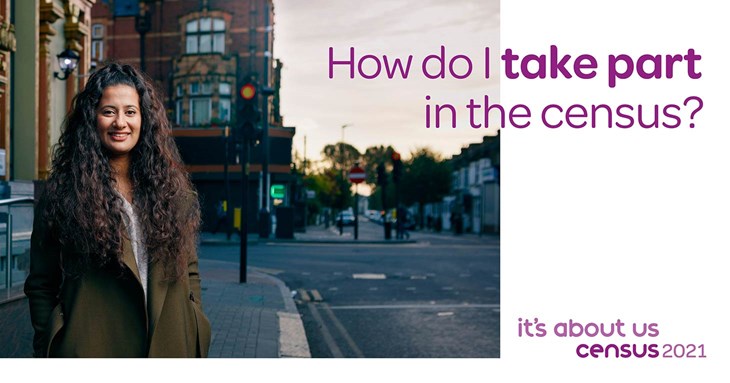Equality, Diversity & Inclusion Project Assistant, Jessie Krish, writes about the UK Census: what it is, why participation matters and how this aspect of our democratic framework stands to have real impacts on equality and inclusion in research, local governance and our daily lives.
The UK census, which happens every 10 years and gathers information that gives the UK government a picture of all the people and households in England and Wales. The data that is collected is used to plan services such as transport, education and healthcare.
It is really important that we all fill the census out on Sunday 21st March or as soon as possible thereafter: ‘who’ participates impacts the data we have and our view of ‘who’ our country is.
The overall response to the last census in 2011 was 94% but amongst some black and minority ethnic households it was up to 10 percentage points lower. This can lead to decision-makers operating without awareness of the needs of particular communities. Entering the recovery phase of the pandemic, which has brought stark disadvantages such as health-inequalities between different ethnic groups to light, this is more important than ever.
We are excited that this year the census will ask voluntary questions on sexual orientation and trans status for the first time since the census first ran in 1801. Iain Bell, Deputy National Statistician at The Office for National Statistics commented in The Guardian that, ‘without robust data on the size of the LGBT population at a national and local level, decision-makers are operating in a vacuum.’ In the same article, Nancy Kelley, chief executive of Stonewall, said: ‘Historically, lesbian, gay, bi and trans people have been a hidden population in the UK, and this lack of visibility has damaged our ability to secure the rights and the support our communities need.’
The census data is also an invaluable resource for those of us working in relation to health, policy and the social sciences, whose research strongly mirrors King’s commitment to society.
A recently published rapid ethnographic study led by Dr Maria Kordowicz from the School of Population Health & Environmental Sciences, in collaboration with Dr Dieu Hack-Polay at the University of Lincoln, scopes the extent to which community organisations do and should play a role in multi-morbidity care provision in Southwark and Lambeth. This is an apt example of King’s research that draws on census data and stands to make a real impact on health and social care policy and outcomes in our local boroughs.
The more accurate census data is, the more useful it is. Don’t forget to fill it out and to remind your friends and family too! It is also important to flag that those who do not complete the census could be fined up to £1000.
Please take note of some key practical information below. For more information visit census.gov.uk.
- Ensure that you have received a letter from the office for National Statistics – this will contain a unique 16-digit household access code. You will need this if you wish to complete your census online.
- Remind all adults in your household that they will need to complete the census too, using the same household access code. The census should take around 10 minutes per person to fill in.
- When you have completed the census, why not share this on social media with the official hashtag #census2021
Additional support:
- If you would prefer to complete a paper form, this can be request via www.census.gov.uk.
- You can visit a Census Support Centre where you will be provided with support to complete the census. Phone the free census helpline on 0800 141 2021 to find your nearest centre.
- To get information about large print formats, braille formats or British Sign Language visit www.census.gov.uk or phone the census helpline free on 0800 141 2021
- Phone the free language helpline on 0800 587 2021
